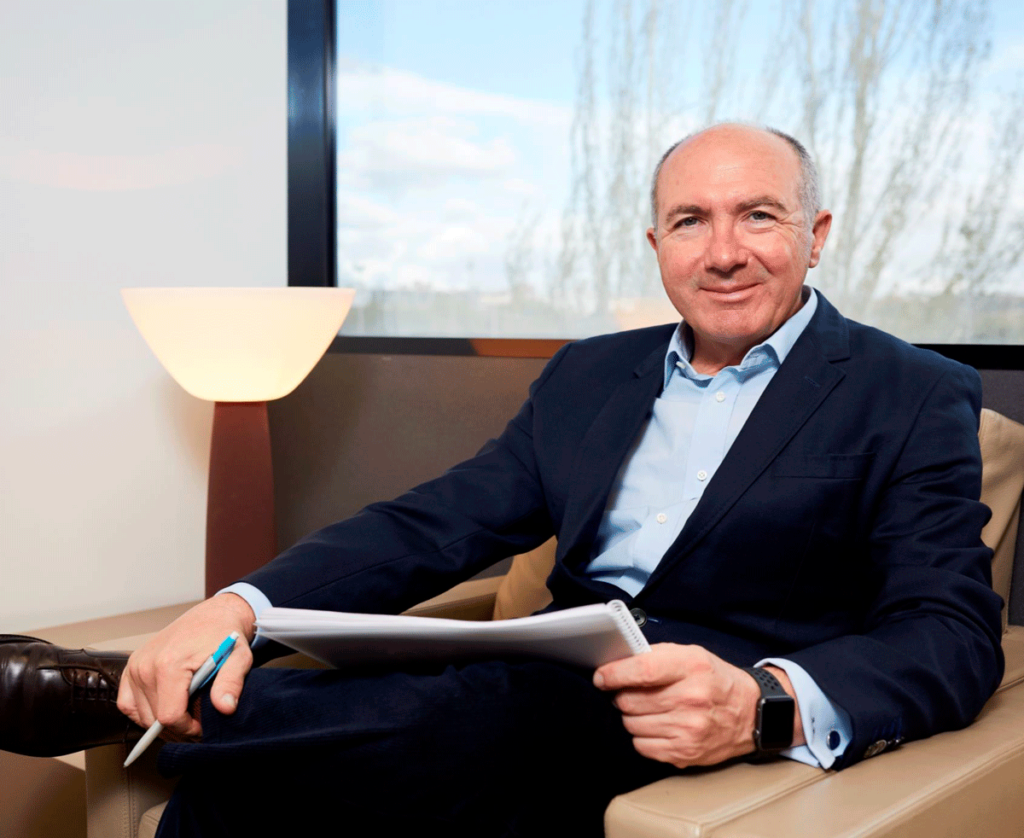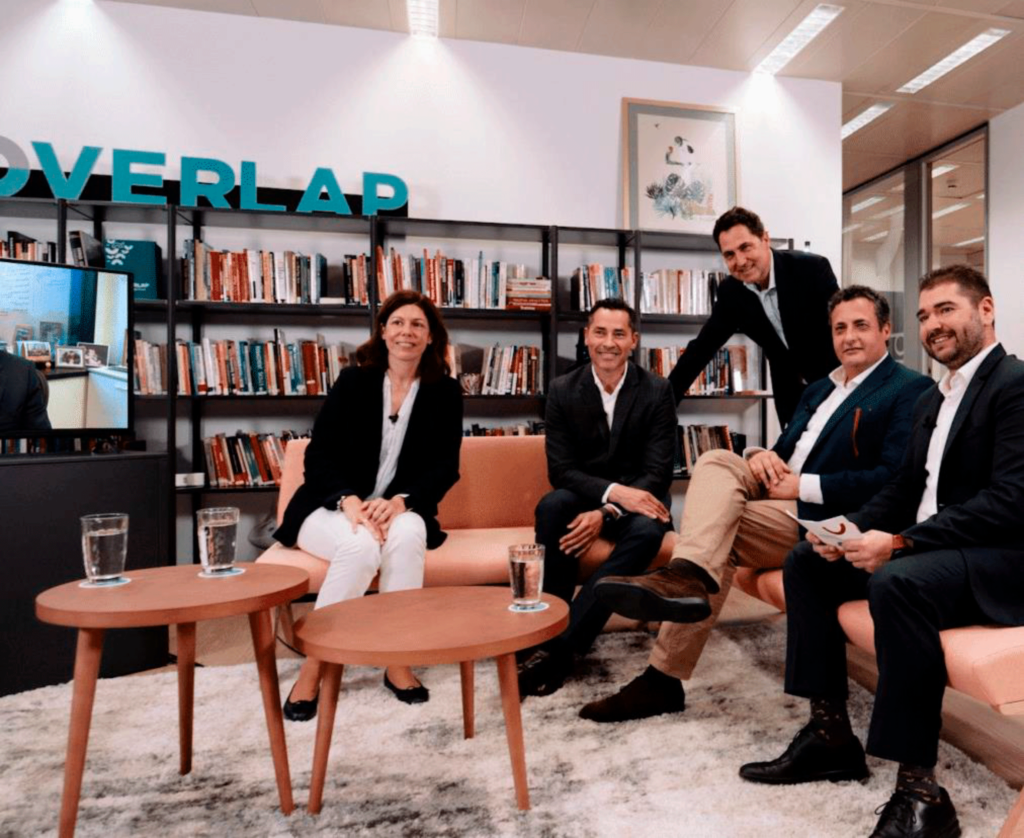This website uses cookies so that we can provide you with the best user experience possible. Cookie information is stored in your browser and performs functions such as recognising you when you return to our website and helping our team to understand which sections of the website you find most interesting and useful.
The Learning Strategy as a response to Repsol’s transformation
08 April, 2024
Access this interview with Marta del Mazo, Learning & Training Senior Manager at Repsol, and Esther Torremocha, Technical Management and Energy Development at Overlap, for Equipos&Talento magazine.

Repsol is immersed in an important moment of transformation, which has led the Training area to rethink the company’s learning strategy to contribute even more to the management and development of talent in the organization. This process of revision and adaptation to the company’s challenges has been carried out in an agile and personalized manner, accompanied by Overlap, Repsol’s strategic partner.
At what point is Repsol at to have rethought a change in apprenticeship?
Marta del Mazo (M.D.M.): The pandemic affected us in the typology of solutions and in the methodologies we applied in training with the most disruptive virtuality, but that has been complemented with the environment we are living in as a multi-energy company. Logically, we had to make a transition to new skills, knowledge and profiles that forced us to define reskilling and upskilling programs to adapt our professionals to the new challenges. This context has guided us to focus on what is necessary for our professionals to learn and develop in a faster and more agile way and, at the same time, to be able to apply what they have learned to their job immediately.
What is the focus of this strategic rethinking of learning?
M.D.M.: We are currently immersed in a major transformation of the company with the aim of achieving net zero emissions by 2050 and evolving our businesses and incorporating new ones to achieve this. This means changing our company configuration and adapting our professionals. In this regard, the Training area has analyzed the impact of these challenges and reviewed the learning strategy we had in place.
and reviewed the learning strategy we had in place until now, as well as our processes, to ensure that our response to the organization and the business is flexible, agile and personalized. One of the important changes in this rethinking is to further strengthen our relationship with our stakeholders to become a key value driver for the business, and for this we needed to be closer to them and learn more about their challenges in order to offer them quality solutions in a timely manner. Whereas before we launched a single program for large groups, now we are customizing it, aware that the needs of each group are not the same. It has also been important to define our own dashboard, evolving the indicators we used to manage and incorporating others that have allowed us to contrast our agility, the training demanded, the perception and to improve the personalized training offer. We used to have a motto: “For training you have to identify the right person and the right time. Now we complement it with: “Not an hour too little, not an hour too much”. We apply customized, just-in-time training. This is the best way to guarantee learning so that people do not become disengaged. When a program is recommended “word of mouth” we can say: “We got it right” This is our hallmark.
What is the Learning Strategy at Repsol and/or what innovations have been incorporated?
M.D.M.: The Learning Strategy is to respond to the challenges of Repsol’s businesses by considering the strategic lines, the critical groups at which our solutions are aimed, the key capabilities to be promoted and the measurement and impact of the programs we develop.
Our training responds to strategic needs and to other more tactical and/or specific needs. We try to focus on those that add value to the business. That is why the proximity of our referents is important. We must work together, know the strategic plans of each business and align ourselves to respond to their specific needs.
You have been working hand in hand with Overlap for years on the “Reflection on learning strategy” How has this joint process been?
Esther Torremocha (E.T.): Yes, it is very important for us that Repsol continues to trust in this reflection. We have been accompanying them in the analysis of their learning strategy for some time now, living closely different phases and moments of the company. This is an ongoing process, which we have carried out by creating specialized teams that have worked on different axes and reflections: strategy, value chain, learning experience, indicators, capabilities, governance model and communication. The challenge is always to align the evolution of learning with the organization’s strategy.
M.D.M.: An important point is that the entire Repsol Training and Learning team has been involved in this reflection. Responsibles have been identified according to their expertise in each of these areas of work, but everyone has participated. It has been a construction together with Overlap in which we have defined the foundations for further work (I digress here to thank the entire Repsol Training Team that has participated and the Overlap team that has accompanied us).
What do you hope to see in the future of this project?
M.D.M.: We are on the right track. We are very directly involved in the company’s challenges. We have to continue to value our contribution to show that Training and Learning is one more lever to face the business challenges and achieve Repsol’s objectives.
Comments



